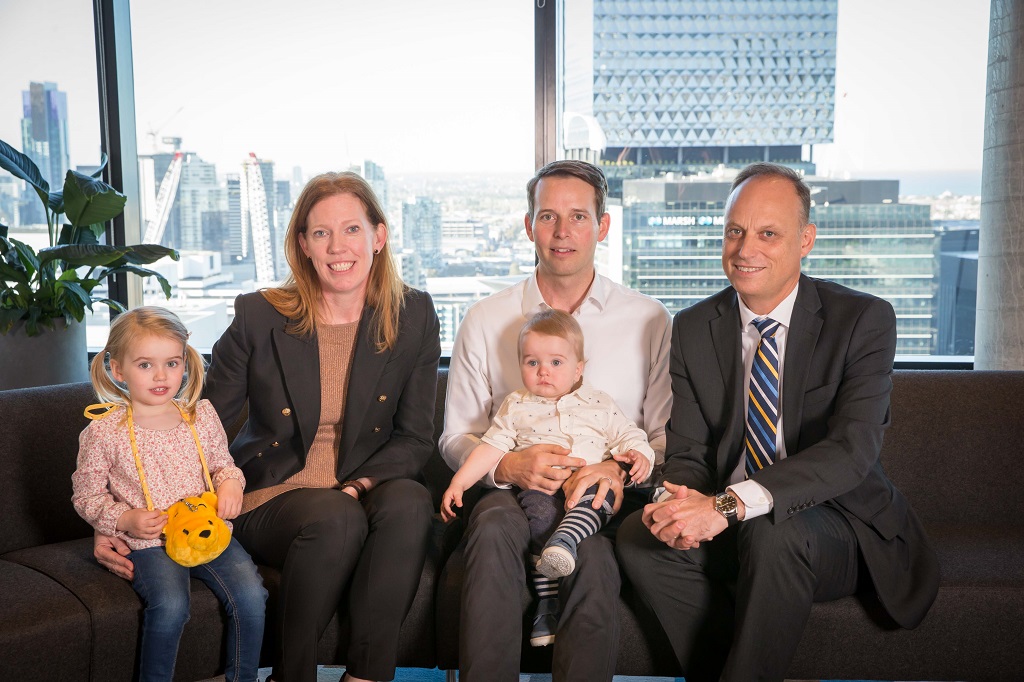It’s an established ethos that male leaders need to step up and directly address the issue of gender inequity if true advancement is to be made within businesses.
As a member of Viva Energy Australia’s senior leadership group, Logistics Manager, Felix Ohle, is demonstrating leadership in this area by actively encouraging new parents in his team to take parental leave and by taking advantage of the policy himself.
He’s also particularly supportive of the company’s new superannuation policy – that pays full superannuation entitlements to part-time employees for up to five years to care for their children.

Flexible working options for families
As a father of two young children, Felix understands the value of flexible working arrangements.
“When our first child was born, I took time off for paternity leave and it was invaluable to spend time with my wife and our new daughter during this period,” Felix says. “Then when our son was born, I took time off when they first came home, and worked part-time for five weeks.”
Moving forward, Felix hopes to see more people taking advantage of flexible working arrangements.
“It’s probably not being used enough, and I think for males especially, it’s not that common to take up these offers. But it becomes part of the culture when you say: This is what we expect and we want to make sure our employees can make use of it, then people can work with that.
“That’s what we cater towards here. We had three people take three months’ paternity leave this year and some more accessing their options. I definitely encourage it because not many companies offer it and time off with your children at that age really is priceless.”
Improved morale
Having the support of an organisation that understands and accommodates individual requirements has a major impact on employee morale, he adds.
“People in my team have said to me that they really appreciate the support they’re getting and that it exceeds their expectations, so I think it definitely creates a bond between the employee and employer that goes much further than just a pay cheque.”
Returning to work
According to Felix, not only are policies such as these a big win for new parents, they also make it easier for women to return to the workforce.
“It can be a real challenge for some women to come back after they have children, and I know for my wife there wasn’t much of an option to return part-time,” he says. “So I think having an organisation that’s supportive of part-time roles or shared arrangements is really important because people need assurance that the business will support them on their return as well.
“This is also where Viva Energy’s new superannuation policy is so groundbreaking. Not only does it send a strong message to employees that the company is truly committed to reducing future financial disadvantage by taking time out of the workplace to care for children, it reinforces further a supportive culture.”
Superannuation inequity faced by women
According to the Association of Superannuation Funds Australia, women’s average superannuation balances at retirement are 52.8% lower than men’s[1].
Shocked by this, Viva Energy did their own research on the current superannuation balances of its own employees and also found significant gaps between the average male and female current superannuation balances. Two of the key factors for this difference is that women take time out of the workforce to have children and then many return on a part-time capacity in the early years.
Viva Energy hopes its new superannuation policy, which applies to both women and men, will remove this substantial financial disadvantage that employees – particularly women – face in retirement.
Employees on parental leave will receive employer superannuation contributions of 12 per cent of the relevant full-time equivalent base salary. Part-time employees will continue to receive superannuation contributions of 12 per cent for the first five years after the birth date of their child.
“I’m quite proud that we’ve taken a ground breaking and sensible approach to addressing an issue related to achieving gender equality.
“We’re the first in Australia to do this and I hope that other businesses take inspiration from us to make a tangible difference.”
While Viva Energy knows this policy will improve the retirement balances of working parents, they hope that it also shows the company’s support for flexible work and that it will encourage more people to make use of flexible working arrangements, including working part time.
Are you interested in a career at Viva Energy?
Find out here